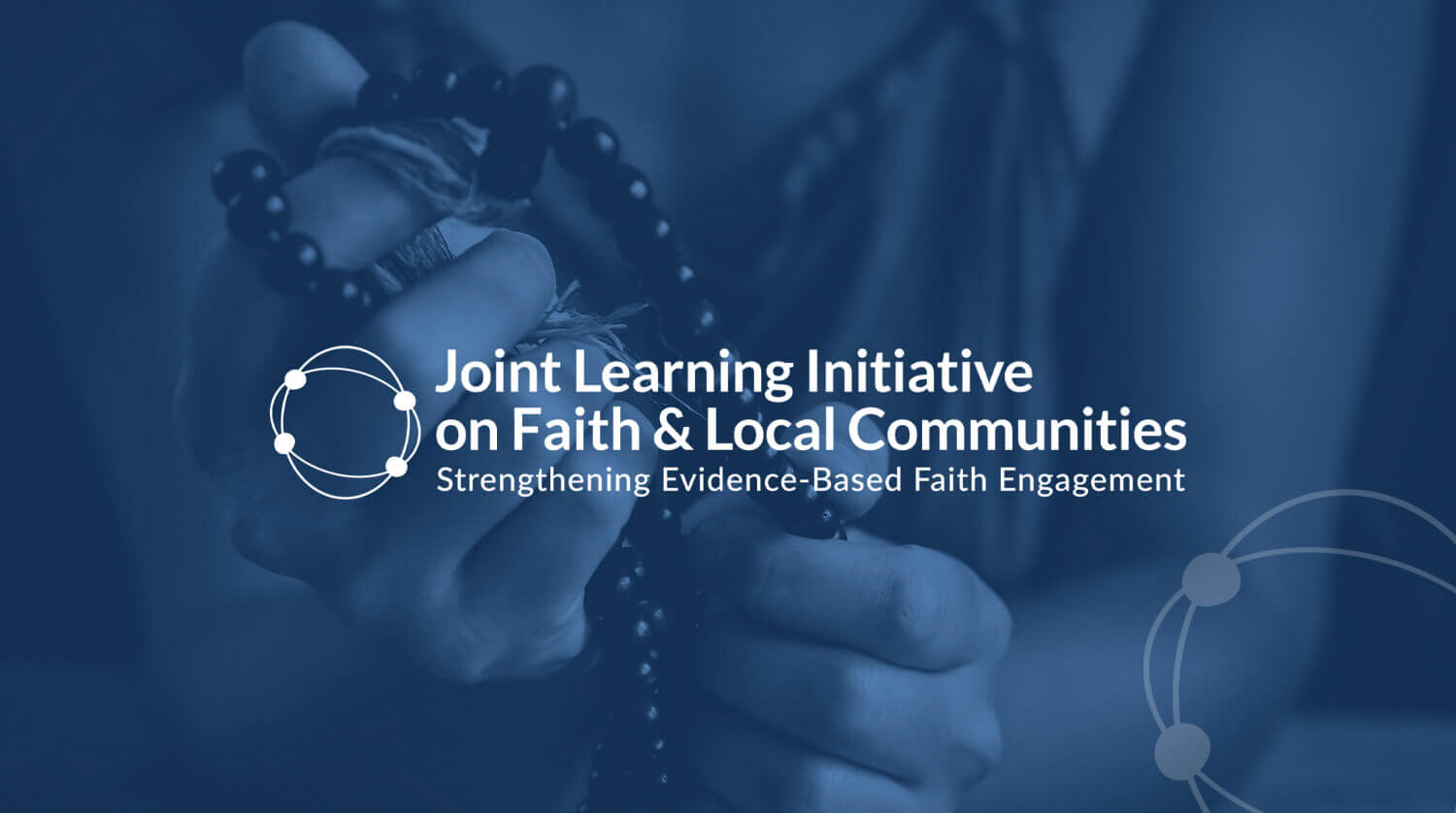A reflection by Lucy V. Salek, Islamic Relief Worldwide, JLIF&LC Peace & Conflict Hub Co-Chair. The Peace & Conflict Scoping Study was launched at the WHS Side Event on Evidence for Religious Groups’ Contributions to Humanitarian Response.
At the start of my career, the separation of ‘religion’ from professional humanitarian and development action was not visible to me. My spiritual life was private, and that the ‘sacred’ had no place in the professional sphere was natural and unquestioned.
This is not unexpected: religious identity has often been viewed as posing an inherent risk to neutrality or impartiality; and that there are competing, even contradictory, mandates between a humanitarian and a “religious” agenda [1]. Of course, such fears can be founded on real examples of harmful behaviour and attitudes, including the impact of proselytism. However, when I reflect back now I find these views ironic in light of the historic role that religion and faith actors have played in the development of IHL and the provision of assistance to those in need. A history that began long before the concept of a professionalized, ‘secular’, humanitarian sector came into being [2].
It was only when I began work for Islamic Relief on understanding how Islam provides a basis for humanitarian action, development, focusing particularly Islamic understandings on conflict and peace, that I began to experience first-hand the separation (and occasional hostility) to the role of religion and faith communities in the humanitarian world. Over the past three years, I am glad to say I have seen this changing.
Lord Carey, former Archbishop of Canterbury, points to the 1997–1998 World Faiths Development Dialogue as a turning point: an event that sought to increase understanding around the role of faith, FBOs and religious institutions in the provision of services, development and humanitarian activities [3]. Since the Dialogue there has been a gradual increase in the interest expressed by the international aid architecture in working with FBOs, faith communities and faith leaders. Since 2005 UN agencies have been developing guidance or frameworks on working with faith communities, and in 2012 the UNHCR High Level Dialogue on refugee protection for religious leaders and faith-based humanitarian organizations.
At the World Humanitarian Summit, with a Special Session devoted to ‘Religious Engagement: The Contributions of Faith Communities to our Shared Humanity’ we are finally seeing the culmination of these changes, and the JLI has been actively working to not only engage with the process but to support it. This is needed. The existence of the Special Session does not signify the end of the journey, but merely the next stage. Scepticism remains, from both sides, on how the humanitarian system can and should engage with religion – both as communities and as values systems. To help ensure that the journey continues we need to represent the role of faith based organisations and communities to the Summit with honesty based on evidence and not shying away from the difficult issues.
There is uncertainty as to the extent to which the Summit will be a ‘success’ in its stated aims to change the way in which we are working and to “invest in humanity”, but I am hopeful that at least the change in how we understand, view and interact with faith and religious communities in the hour of need continues.
Lucy V. Salek is Senior Advisor for Islamic Relief Worldwide with a focus on conflict and fragile states. She is Co-Chair of the JLIF&LC Peace & Conflict Learning Hub and author of Working in Conflict: A Faith Based Toolkit for Islamic Relief (Islamic Relief 2014).
[1] Wilfred Mlay, “Some Myths about Faith-Based Humanitarian Aid”, Humanitarian Exchange Magazine, 27 July 2004 [2] James Cockayne, “Islam and International Humanitarian Law: From a Clash to a Conversation between Civilizations”, International Review of the Red Cross, Vol. 84, No. 847, 2002 [3] “Foreword by Lord Carey”, pp. xv–xvi in Gerard Clarke and Michael Jennings (eds), Development, Civil Society and Faith Based Organisations: Bridging the Sacred and the Secular, Palgrave Macmillan, Hampshire and London, 2008





